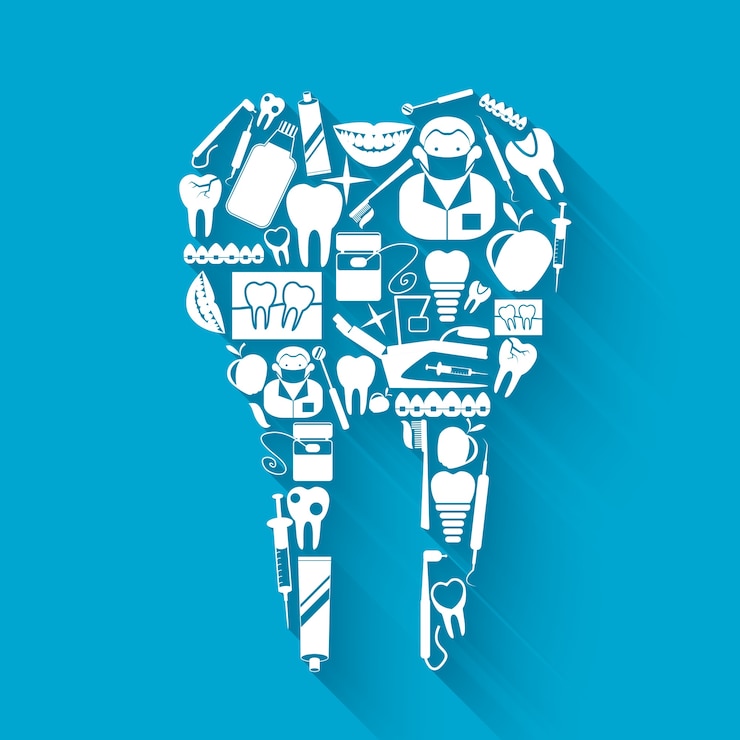
Most people are familiar with the basics of keeping their teeth and gums healthy. Brushing and flossing twice a day, avoiding sugary foods, and visiting the dentist every six months are common practices. However, there are other less obvious factors that could be harming your oral health without you realizing it. These can lead to dental problems or even infections. Let’s take a closer look at some of these factors and how you can address them to maintain better dental health.
Stress is a major factor that can take a toll on your teeth and gums. While most people associate stress with issues like poor sleep, digestive problems, or mental health challenges, it can also lead to oral health issues. Stress can trigger sores and ulcers in your mouth while reducing saliva production. Lower saliva levels can make you more prone to tooth decay and gum diseases like gingivitis. High-stress levels can also cause bruxism, which is the grinding or clenching of teeth. This habit can damage your teeth over time, so finding ways to manage or reduce stress could greatly benefit your oral health.
Sleep disorders like sleep apnea are another contributor to oral problems. Sleep apnea can cause bruxism, which might result in jaw pain, also known as temporomandibular disorder (TMD). Teeth grinding can wear down your teeth, increasing your chances of decay and, in severe cases, even lead to cracked teeth that require extractions. If you deal with sleep disorders, it’s essential to see a doctor for treatment or consider wearing a night guard to help protect your teeth while you sleep.
Acid reflux is a common condition that can negatively impact your teeth as well. Gastroesophageal reflux disease (GERD) allows stomach acid to travel up to your mouth, which can erode your teeth over time. This erosion can make your teeth thin, sharp, and more susceptible to breaking or falling out. If you suffer from acid reflux, consult a doctor for treatments or medications to manage it and protect your teeth.
Snacking throughout the day can also be bad for your dental health, especially if you don’t clean your teeth afterward. Many snacks, like dried fruits, raisins, and nuts, stick to your teeth and increase plaque buildup, leaving you more vulnerable to tooth decay. Try to practice good hygiene after snacking or choose healthier options to avoid these issues.
Mouth breathing is another habit that can harm your oral health, often caused by nasal obstructions. Breathing through your mouth instead of your nose can dry it out and reduce saliva production, increasing your risk of gum disease, bad breath, and even bleeding gums. If you struggle with mouth breathing, it’s worth seeing a doctor to address the root cause and prevent further damage.
Certain medications can also have adverse effects on your dental health. Many drugs are known to cause gum inflammation, which can lead to complications after tooth extractions or surgeries. Always inform your dentist about any prescriptions you’re taking so they can recommend precautions and monitor you more closely during dental treatments.
Chronic sinus problems can also overlap with dental issues. Conditions like allergies, asthma, or hay fever are common triggers, and smoking can make things worse. Sinus problems can lead to pain in the roof of your mouth, dry mouth, and bad breath. If this affects you, make sure your dentist is aware so they can help with additional cleanings or treatments to keep your mouth healthy.
Nutrition plays a bigger role in dental health than many people realize. While cutting down on sugary foods is essential, getting enough vitamins and nutrients is just as important. Poor nutrition can weaken your teeth and gums, increasing your risk of problems over time. If you suspect a vitamin deficiency, speak with your doctor about supplements or dietary changes that could strengthen your teeth.
As you can see, there are many hidden factors that could be affecting your oral health. If you’re struggling with issues, it’s worth looking into these potential causes. Always consult your dentist before trying new remedies or making major changes to your oral care routine. Taking a proactive approach can make a huge difference in keeping your teeth and gums healthy.